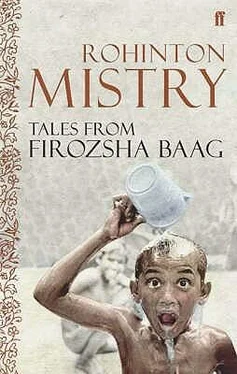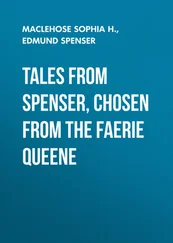Rohinton Mistry - Tales From Firozsha Baag
Здесь есть возможность читать онлайн «Rohinton Mistry - Tales From Firozsha Baag» весь текст электронной книги совершенно бесплатно (целиком полную версию без сокращений). В некоторых случаях можно слушать аудио, скачать через торрент в формате fb2 и присутствует краткое содержание. Год выпуска: 2006, Издательство: Faber & Faber, Жанр: Современная проза, на английском языке. Описание произведения, (предисловие) а так же отзывы посетителей доступны на портале библиотеки ЛибКат.
- Название:Tales From Firozsha Baag
- Автор:
- Издательство:Faber & Faber
- Жанр:
- Год:2006
- ISBN:нет данных
- Рейтинг книги:3 / 5. Голосов: 1
-
Избранное:Добавить в избранное
- Отзывы:
-
Ваша оценка:
- 60
- 1
- 2
- 3
- 4
- 5
Tales From Firozsha Baag: краткое содержание, описание и аннотация
Предлагаем к чтению аннотацию, описание, краткое содержание или предисловие (зависит от того, что написал сам автор книги «Tales From Firozsha Baag»). Если вы не нашли необходимую информацию о книге — напишите в комментариях, мы постараемся отыскать её.
Tales From Firozsha Baag — читать онлайн бесплатно полную книгу (весь текст) целиком
Ниже представлен текст книги, разбитый по страницам. Система сохранения места последней прочитанной страницы, позволяет с удобством читать онлайн бесплатно книгу «Tales From Firozsha Baag», без необходимости каждый раз заново искать на чём Вы остановились. Поставьте закладку, и сможете в любой момент перейти на страницу, на которой закончили чтение.
Интервал:
Закладка:
Tense with excitement I walked across the tarmac. The slight chill I felt was due to the gusting night winds, I convinced myself.
Then, eyes red with conjunctivitis, pocket bulging with the ridiculously large bottle of eye-drops, and mind confused by a thousand half formed thoughts and doubts, I boarded the aircraft sitting white and roaring upon the concrete. I tried to imagine Mummy and Daddy on the visitors’ gallery, watching me being swallowed up into its belly, I imagined them consoling each other and fighting back the tears (as they had promised me they would) while I vanished into the night.
After almost a year in Toronto I received a letter from Jamshed. From New York — a very neat missive, with an elegant little label showing his name and address. He wrote that he’d been to Bombay the previous month because in every single letter his mother had been pestering him to visit: “While there, I went to Firozsha Baag and saw your folks. Glad to hear you left India. But what about Percy? Can’t understand what keeps him in that dismal place. He refuses to accept reality. All his efforts to help the farmers will be in vain. Nothing ever improves, just too much corruption. It’s all part of the ghati mentality. I offered to help him immigrate if he ever changes his mind. I’ve got a lot of contacts now, in New York. But it’s up to him to make up his mind,” and on and on.
Finally: “Bombay is horrible. Seems dirtier than ever, and the whole trip just made me sick. I had my fill of it in two weeks and was happy to leave!” He ended with a cordial invitation to New York.
What I read was only the kind of stuff I would have expected in a letter from Jamshed. That was the way we all used to talk in Bombay. Still, it irritated me. It was puzzling that he could express so much disdain and discontentment even when he was no longer living under those conditions. Was it himself he was angry with, for not being able to come to terms with matters as Percy had? Was it because of the powerlessness that all of us experience who, mistaking weakness for strength, walk away from one thing or another?
I started a most punctilious reply to his letter. Very properly, I thanked him for visiting my parents and his concern for Percy. Equally properly, I reciprocated his invitation to New York with one to Toronto. But I did not want to leave it at that. It sounded as if I was agreeing with him about Percy and his work, and about India.
So instead, I described the segment of Toronto’s Gerrard Street known as Little India. I promised that when he visited, we would go to all the little restaurants there and gorge ourselves with bhelpuri, panipuri, balata-wada, kulfi , as authentic as any in Bombay; then we could browse through the shops selling imported spices and Hindi records, and maybe even see a Hindi movie at the Naaz Cinema. I often went to Little India, I wrote; he would be certain to have a great time.
The truth is, I have been there just once. And on that occasion I fled the place in a very short time, feeling extremely ill at ease and ashamed, wondering why all this did not make me feel homesick or at least a little nostalgic. But Jamshed did not have to know any of it. My letter must have told him that whatever he suffered from, I did not share it. For a long time afterwards I did not hear from him.
My days were always full. I attended evening classes at the University of Toronto, desultorily gathering philosophy credits, and worked during the day. I became a member of the Zoroastrian Society of Ontario. Hoping to meet people from Bombay, I also went to the Parsi New Year celebrations and dinner.
The event was held at a community centre rented for the occasion. As the evening progressed it took on, at an alarming rate, the semblance of a wedding party at Bombay’s Cama Garden, with its attendant sights and sounds and smells, as we Parsis talked at the top of our voices, embraced heartily, drank heartily, and ate heartily. It was Cama Garden refurbished and modernized, Cama Garden without the cluster of beggars waiting by the entrance gate for the feast to end so they could come in and claim the dustbins.
My membership in the Society led to dinner invitations at Parsi homes. Many of the guests at these gatherings were not the type who would be regulars at Little India, but who might go there with the air of tourists, equipped with a supply of ohs and aahs for ejaculation at suitable moments, pretending to discover what they had always lived with.
These were people who knew all about the different airlines that flew to Bombay. These were the virtuosi of transatlantic travel. If someone inquired of the most recent traveller, “How was your trip to India?” another would be ready with “What airline?” The evening would then become a convention of travel agents expounding on the salient features of their preferred carriers.
After a few such copiously educational evenings, I knew what the odds were of my luggage getting lost if I travelled airline A. The best food was served on airline B. Departures were always delayed with airline C (the company had a ghati sense of time and punctuality, they said). The washrooms were filthy and blocked up on airline D (no fault of airline D, they explained, it was the low class of public that travelled on it).
Of Bombay itself the conversation was restricted to the shopping they’d done. They brought back tales of villainous shopkeepers who tried to cheat them because they sensed that here was the affluence of foreign exchange: “Very cunning, they all are. God knows how, but they are able to smell your dollars before you even open your wallet. Then they try to fool you in the way they fool all the other tourists. I used to tell them” — this, in broken Hindi — “ ‘go, go, what you thinking, I someone new in Mumbai? I living here thirty years, yes thirty, before going phoren.’ Then they would bargain sensibly.”
Others told of the way they had made a shrewd deal with shopkeepers who did not know the true value of brass and copper artifacts and knick-knacks, what did bloody ghatis know about such things anyway. These collectors of bric-a-brac, self-appointed connoisseurs of art and antiques, must have acquired their fancies along with their immigration visas.
But their number was small. And though they were as earnest about their hobbies as the others were, they never quite succeeded in holding the gathering transfixed the way the airline clique managed to. Art was not as popular as airlines were at these evenings.
Six months after Jamshed’s trip to Bombay, I received a letter from my brother Percy. Among other things, he wrote about his commitment in the small village:
Our work with the farmers started successfully. They got interest-free loans in the form of seed and fertilizer, which we purchased wholesale, and for the first time in years they did not have to borrow from those bloodthirsty money-lenders.
Ever since we got there the money-lenders hated us. They tried to persuade us to leave, saying that what we were doing was wrong because it was upsetting the delicate balance of village life and destroying tradition. We in turn pointed out things like exploitation, usury, inhumanity, and other abominations whose time was now up. We may have sounded like bold knights-errant, but they turned to threats and said it would soon become so unhealthy for us that we would leave quickly enough.
One day when we were out visiting a loan applicant, a farmer brought news that a gang of thugs wielding sticks and cudgels was waiting at the hut — our office and residence. So we stayed the night with the loan applicant and, in the morning, escorted by a band of villagers who insisted on coming along, started for our hut. But all we found were smouldering embers. It had been razed to the ground during the night, and no one had dared interfere.
Читать дальшеИнтервал:
Закладка:
Похожие книги на «Tales From Firozsha Baag»
Представляем Вашему вниманию похожие книги на «Tales From Firozsha Baag» списком для выбора. Мы отобрали схожую по названию и смыслу литературу в надежде предоставить читателям больше вариантов отыскать новые, интересные, ещё непрочитанные произведения.
Обсуждение, отзывы о книге «Tales From Firozsha Baag» и просто собственные мнения читателей. Оставьте ваши комментарии, напишите, что Вы думаете о произведении, его смысле или главных героях. Укажите что конкретно понравилось, а что нет, и почему Вы так считаете.












